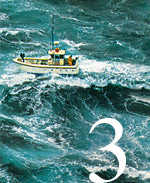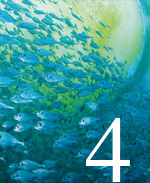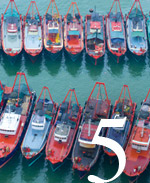- The Future of Fish – The Fisheries of the Future
- > WOR 1 provided a panoptic overview. The following report (WOR 2), the second in the series, focuses on the future of fish and their exploitation. Fish have always been a vital source of life for mankind – not only as a food. Fish continue to be essential to the daily diet of people in most regions of the world. At the same time fisheries provide a livelihood to entire coastal regions and still have great economic clout. All this, however, is in jeopardy and is coming under close scrutiny. Fish stocks are declining worldwide, entire marine regions are overfished and some species are already red-listed.
WOR 2
WOR 2 The Future of Fish – The Fisheries of the Future | 2013




